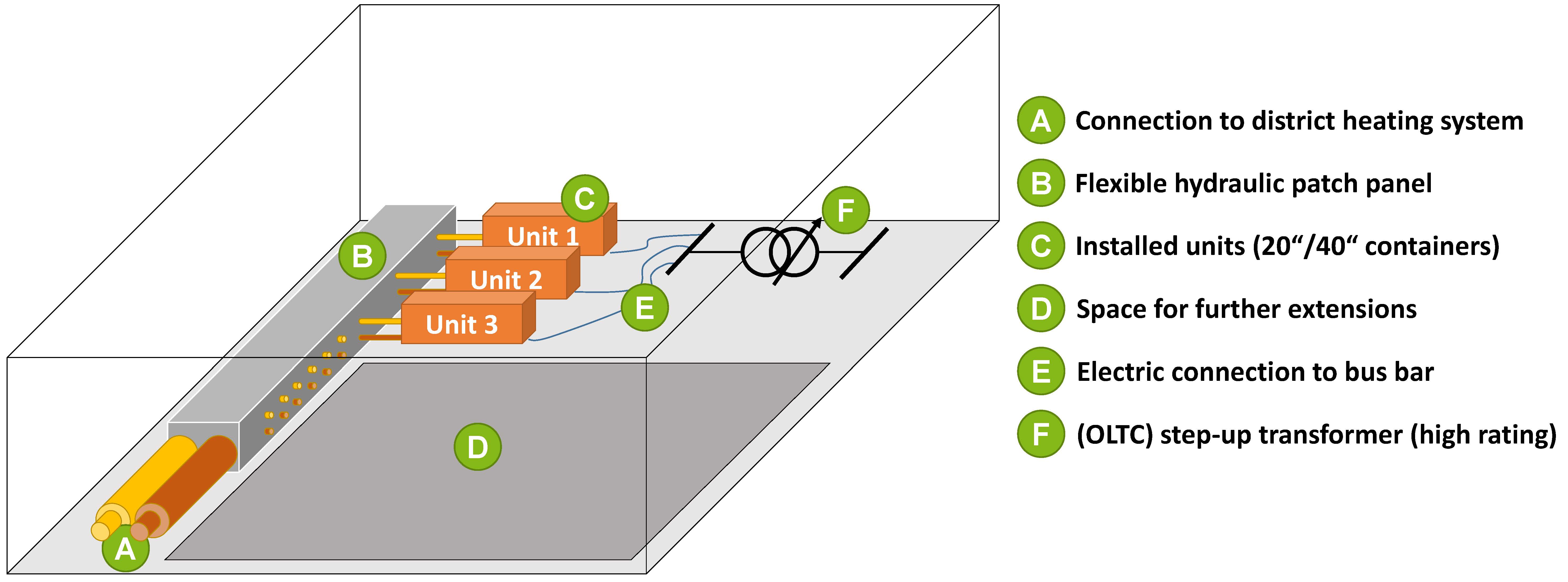Energy conversion and distribution (heat and electricity) is characterized by long planning horizons, investment periods and depreciation times, and it is thus difficult to plan and tell the technology that optimally fits for decades. Uncertainties include future energy prices, applicable subsidies, regulation, and even the evolution of market designs. To achieve higher adaptability to arbitrary transition paths, a technical concept based on integrated energy systems is envisioned and described. The problem of intermediate steps of evolution is tackled by introducing a novel paradigm in urban infrastructure design.It builds on standardization, modularization and economies of scale for underlying conversion units. Building on conceptual arguments for such a platform, it is then argued how actors like (among others) municipalities and district heating system operators can use this as a practical starting point for a manageable and smooth transition towards more environmental friendly supply technologies, and to commit to their own pace of transition (bearable investment/risk). environmental friendly supply technologies. Merits are not only supported by technical arguments but also by strategical and societal prospects like technology neutrality and availability of real options.

